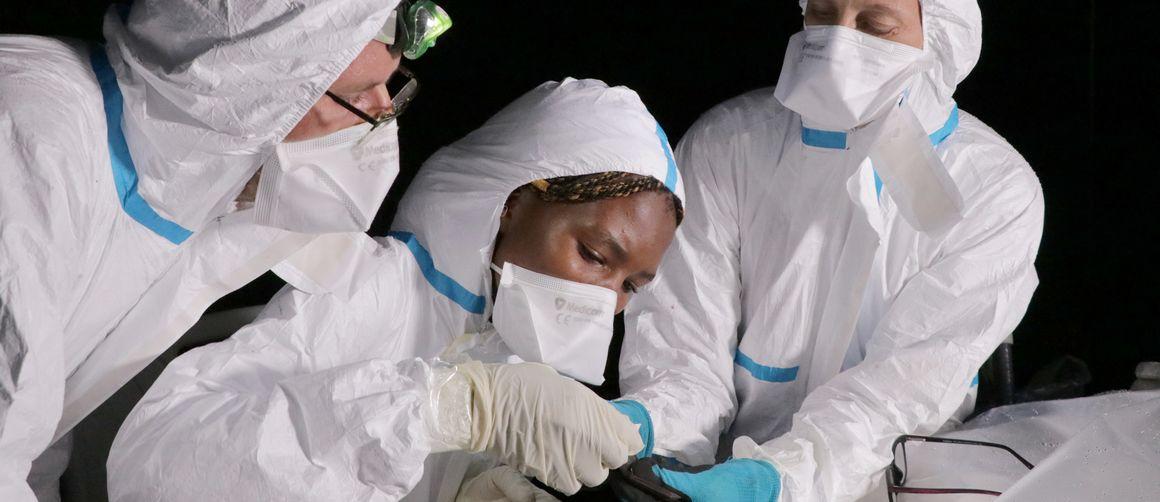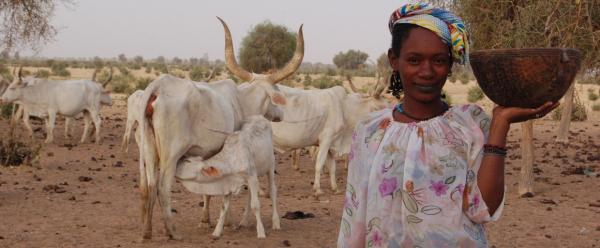Event 9 December 2025
- Home
- CIRAD news
- News
- PREZODE | Joining forces to escape the era of pandemics
PREZODE | Joining forces to escape the era of pandemics

Manipulation de terrain en vue de mieux connaître les coronavirus portés par les chauves-souris au Zimbabwe © A. Jimu
A high-level event was held recently, just short of a year after the launch of the PREZODE initiative. It was organized within the framework of the French Presidency of the Council of the European Union, and brought together all the scientific, operational and political stakeholders concerned by the initiative, to discuss prevention and surveillance strategies and unveil the recommendations resulting from a series of co-construction workshops organized in 2021, in Europe and beyond.
For Marisa Peyre, epidemiologist and CIRAD PREZODE coordinator, the day was marked by "a true consensus on a paradigm shift to prevention, and on the importance of global cohesion and the determining role Europe can play in structuring".
This project promises a paradigm shift, and recognizes the crucial role of biodiversity in the emergence of zoonotic diseases.
The importance of co-construction
The ambitious initiative combines knowledge generation with operational activities, in the aim of preventing the emergence of zoonotic diseases. It currently has more than 100 partners worldwide, with seven partner countries spread over four continents.
PREZODE is continuing its expansion by means of a co-construction process, led globally by CIRAD and IRD, which has already involved more than 1500 players from 122 countries.
Thierry Lefrançois, Director of CIRAD's Biological Systems Department and member of the French Covid-19 Scientific Council, reminded participants that "prevention mechanisms are never more effective than when they are co-constructed and implemented in a way that involves local decision-makers and communities".
CIRAD has sound expertise in co-construction of such prevention mechanisms, and has contributed to several successful operations:
- An assessment of the Indonesian animal health information system, which places field staff at the heart of the system (ISIKHNAS)
- A national and regional assessment of avian influenza surveillance systems over 20 years (REVASIA)
- The EU RISKSUR programme, notably including an assessment of the acceptability of surveillance systems, for instance whether classical swine fever surveillance is acceptable to hunters in Germany.
We can no longer pretend we don't know that human health depends on that of animals and the environment.
Stepping up international cooperation
Co-construction and bottom-up approaches are recognized to be an effective, sustainable response to global health issues. They must be integrated into European research practice, and should guide international strategy partnerships in the field of pandemic prevention.
Research and multi-stakeholder participatory approaches make it possible to capitalize on and share new knowledge and successful practices. National and European instruments must foster global networking and cooperation.
Despite the building of a range of surveillance and pandemic preparedness systems worldwide over the past two decades, pandemics are continuing to emerge ever more frequently. Covid-19 is the latest and worst example yet.
Worldwide, the One Health concept is seen as crucial to preventing and controlling pandemics more effectively. However, it remains largely theoretical, with a limited number of effective, concrete actions.
These facts hammer home the urgent need to act to prevent diseases. It is clear that responding to a pandemic is 100 times more expensive than prevention.



























